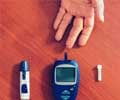A new marker that could facilitate the development of stem cells into insulin producing cells will help millions of people worldwide with type 1 diabetes who cannot produce sufficient insulin.

Pancreatic stem cells, the precursors of insulin-producing cells, have not yet been identified in humans or animals, and there is much debate about where they may reside. Ivka Afrikanova, Ayse Kayali, Ana Lopez, and Alberto Hayek, University of California, San Diego, CA, have identified a biochemical marker—stage-specific embryonic antigen 4 (SSEA4)—that they propose can be used to identify and purify human pancreatic stem cells. The article "Is Stage-Specific Embryonic Antigen 4 a Marker for Human Ductal Stem/Progenitor Cells" http://online.liebertpub.com/doi/full/10.1089/biores.2012.0235">http://online.liebertpub.com/doi/full/10.1089/biores.2012.0235
Source-Eurekalert















